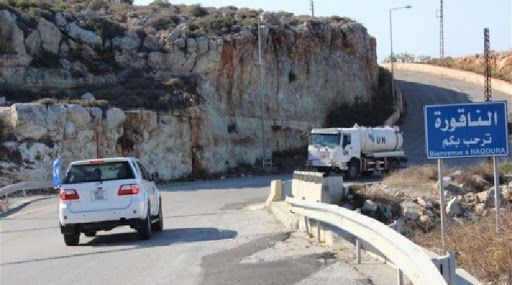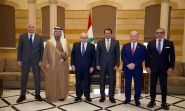
While touring southern Lebanon on Thursday, Prime Minister Nawaf Salam announced that an international conference in support of the Lebanese Armed Forces (LAF) and security services – in preparation for several months – is expected to be held "soon." The event aims to address the urgent needs of the army, particularly in areas impacted by the war between Hezbollah and Israel.
Salam emphasized that reconstruction and development in war-affected regions remain a top priority, despite the state’s limited resources. He reaffirmed the government's commitment to restoring public institutions and rebuilding trust with citizens, notably by strengthening personnel, equipment, and salaries across security forces, at a time when the United Nations Interim Force in Lebanon (UNIFIL) continues its gradual withdrawal from the south.
Salam also called for the parliamentary elections to be held on schedule, rejecting any postponement. He reiterated the government’s commitment to restricting the carrying of weapons to the state and to pursuing financial, administrative, and judicial reforms. In light of the major changes the region is undergoing in terms of shifting balances of power and the redefinition of interests, the Prime Minister reaffirmed Lebanon’s “commitment to its position and its natural role,” in line with a new path toward regional stability.
During his visit to the city of Saida, the Prime Minister inspected several key facilities, including the port, the waste treatment center, the wastewater station, and the public hospital. He reiterated the presence of the state and its willingness to respond to the population’s needs.
His tour was set to continue with visits to the Serail of Saida and the municipality, before concluding with a lunch at the Makassed school.
Ceasefire monitoring committee meets in Ras Naqoura
Also in the south, the ceasefire monitoring committee, established following the truce declared on November 27, 2024, to end hostilities between Hezbollah and Israel, convened on Wednesday in Ras Naqoura.
No official statement was released following the meeting. However, according to sources cited by Asharq al-Awsat, it was a routine session. Those same sources said that the report recently presented by the Lebanese Army Commander, General Rodolph Haykal, was reviewed during the meeting.
Other sources, quoted by local media, indicated that the committee’s new chairman, General Joseph Clearfield, aims to revive discussions to contain the recurring tensions along the southern border. The medium-term goal would be to negotiate a partial Israeli withdrawal from five disputed border points, alongside a gradual disarmament mechanism for Hezbollah, under both local and international supervision.
It should be noted that General Clearfield succeeded General Michael Leeney as the committee’s head.
US Special Envoy Morgan Ortagus was not present at the meeting. According to diplomatic sources, her planned visit to Beirut was canceled due to travel restrictions imposed as part of the US government shutdown.
Meeting Between President Aoun and UNIFIL Commander
In a separate development, Lebanese President Joseph Aoun met Thursday morning at Baabda Palace with the commander of the United Nations Interim Force in Lebanon (UNIFIL), General Diodato Abagnara. The latter assured that the gradual reduction of UNIFIL troops would not affect coordination with the Lebanese Army or the logistical and operational support provided to units deployed in the South.
This meeting took place in the context of UNIFIL’s gradual disengagement, with its current mandate set to expire in December 2026. According to UN forecasts, troop reductions are underway and expected to lead to a full withdrawal by the end of 2027.
قائد القوات الدولية العاملة في الجنوب، الجنرال Diodato Abagnara، أكّد للرئيس جوزاف عون أنّ الخفض التدريجي لقوات "اليونيفيل" لن يؤثّر على التنسيق القائم ولا على استمرار دعم الجيش اللبناني المنتشر في منطقة العمليات الدولية pic.twitter.com/LFTzqFlVYp
— Lebanese Presidency (@LBpresidency) October 16, 2025
Escalation on the Ground
On the security front, an Israeli bomb targeted a farmer in Marjaayoun, east of Blida, Thursday morning, without causing casualties. Machine-gun fire was also reported near Aitaroun, in the Bint Jbeil district.
The previous evening, an Israeli drone fired two guided missiles at a civilian “Rapid” type vehicle traveling on the Siddiqine-Kafra road. The driver, who survived the first strike and tried to flee toward the hills, was eventually hit and wounded by two additional missiles.
Meanwhile, residents of Aita al-Shaab discovered an Israeli drone that had crashed several days earlier. In another incident, an Israeli army bulldozer, escorted by military vehicles, crossed the border in the Ghassouna area, east of Blida, to carry out earthworks inside Lebanese territory.



Comments